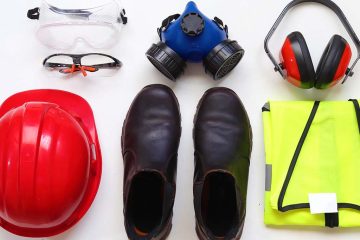Face recognition technology has rapidly advanced in recent years, transforming how we interact with security systems, digital devices, and even social media platforms. This cutting-edge technology has found diverse applications across various industries, from enhancing security protocols to streamlining customer experiences. In this article, we’ll explore the multifaceted uses of face recognition systems and how they are reshaping different aspects of our lives.
Enhanced Security Measures
One of the most prominent applications of face recognition technology is in bolstering security measures. Many organizations and institutions use it for access control and identification purposes. For example, airports employ face recognition systems for passport verification and to track individuals on watch lists. Similarly, businesses use this technology to secure entry into restricted areas or to authenticate transactions securely.
In the realm of law enforcement, face recognition plays a critical role in identifying suspects from surveillance footage or public cameras. Police departments use this technology to match faces against criminal databases, aiding in the investigation and prevention of crimes. While controversial, these systems have proven effective in locating missing persons or apprehending dangerous individuals.
Improved Customer Experience
Face recognition has also transformed customer service interactions across various industries. For instance, stores are experimenting with personalized shopping experiences using this technology in retail. By recognizing loyal customers, stores can offer tailored recommendations or promotions, creating a more engaging and efficient shopping journey.
In the hospitality sector, hotels are implementing face recognition for check-ins. This allows guests to bypass traditional processes and provides a seamless arrival experience. This not only saves time but also adds a touch of modernity to the guest experience.
Identity Verification and Access Control
Another significant application of face recognition is in identity verification and access control. Beyond traditional passwords or ID cards, biometric authentication using face recognition offers a more secure and user-friendly alternative. Mobile devices now routinely incorporate face recognition as a method of unlocking, ensuring only authorized users gain access.
Moreover, face recognition technology is increasingly used in financial services for secure transactions. Banks are exploring biometric authentication to replace PINs or passwords, reducing fraud and enhancing customer trust.
Personalized Advertising and Marketing
Marketers are leveraging face recognition to deliver targeted advertising campaigns. Digital billboards equipped with this technology can gauge a viewer’s demographics, such as age and gender, to display relevant ads. This enables advertisers to tailor messages more effectively and maximize engagement.
Social media platforms like Facebook employ face recognition to suggest tagging individuals in photos and videos automatically. This feature enhances user experience and connectivity, streamlining content sharing among friends and family.
Healthcare and Biometrics
The healthcare industry has embraced face recognition for various applications, from patient identification to medical diagnostics. Hospitals use this technology to verify patient identities, reducing errors and improving efficiency in treatment. Additionally, research is underway to leverage facial biometrics for diagnosing certain medical conditions, such as genetic disorders or cardiovascular diseases, based on facial features.
Enhanced Public Safety and Surveillance
Face recognition has implications for public safety and surveillance. Law enforcement agencies deploy this technology to monitor public spaces for criminal activity and identify persons of interest. While this raises concerns about privacy and civil liberties, proponents argue that it enhances public safety by deterring crime and assisting in emergency response.
Emerging Applications
As face recognition technology advances, new and unexpected applications continue to emerge. For instance, some amusement parks use it for ticketless entry, automatically admitting pass holders without physical tickets. In education, schools are exploring face recognition for attendance tracking, simplifying administrative tasks for teachers.
Challenges and Ethical Considerations
Despite its widespread adoption, face recognition technology is not without its challenges. Privacy concerns are paramount, as the use of biometric data raises questions about individual rights and data protection. Issues of consent, data security, and potential misuse of facial recognition systems underscore the importance of ethical guidelines and regulatory frameworks.
Furthermore, bias and accuracy issues persist in face recognition algorithms. Studies have shown that these systems can exhibit racial or gender bias, leading to misidentifications and potentially harmful consequences. Addressing these issues requires ongoing research, transparency in algorithm design, and inclusive datasets to ensure fair and equitable deployment.
Future Outlook
Looking ahead, face recognition technology is poised to continue evolving and expanding its reach. With machine learning and artificial intelligence advancements, we can expect more sophisticated applications across industries. However, alongside innovation, it’s crucial to navigate the ethical implications and regulatory challenges to responsibly harness this transformative technology’s full potential.
In conclusion, face recognition systems are revolutionizing numerous industries and aspects of daily life. From strengthening security protocols and improving customer experiences to enhancing healthcare and personalized marketing, the uses of this technology are extensive and diverse. However, ethical and privacy concerns persist alongside its benefits, emphasizing the need for responsible deployment and regulation. As innovation progresses, face recognition will undoubtedly continue to shape our future, offering unprecedented opportunities and challenges for society.




